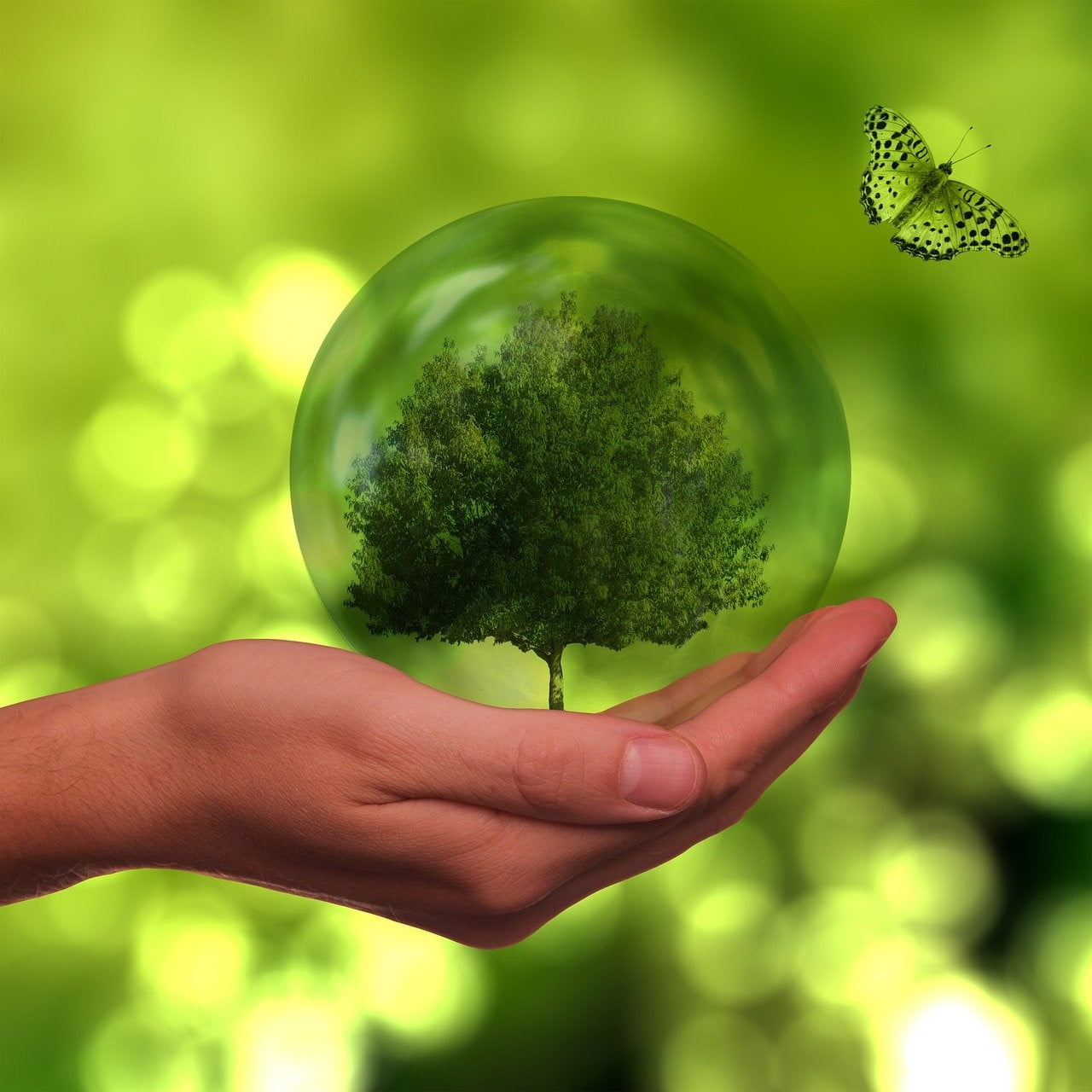by Gianna Compagno
Scientists have warned that there are 10 years left to make changes that will allow the world to avoid the worst impacts of climate change [1]. As the world economy begins to rebuild itself from the coronavirus crisis, the international community has been presented with a new opportunity to address the coronavirus crisis and the environmental crisis together.
The oil and gas industries have been some of the hardest hit by the Covid-19 pandemic, and on average since the beginning of 2020, major oil and gas companies have lost 45% of their value. Furthermore, the petrochemical and plastic industries are being disturbed by falling demand and battles over oil prices [2].
During our efforts to rebuild the economy, turning towards green solutions will look better in the long-term. Cohen and Kammen write the following: “According to a 2011 World Bank study, $1m invested in the [sic] oil and gas in the United States creates just five jobs, compared to 17 jobs per million dollars invested in energy-saving building retrofits, 22 jobs for mass transit, 13 for wind, and 14 for solar” [3]. Furthermore, government investments in green purchases can help bring stable incomes to workers and firms, and those looking for work can begin applying for green jobs and start work within these fields once lockdown measures are lifted [3].
Some countries have already made the move towards meeting the needs of their people and the planet. Amsterdam has committed itself to Kate Raworth’s “Doughnut Model” which focuses on addressing both everyone’s core needs and the necessary measures to upkeep the health of the planet [4]. (For a more detailed analysis of the Doughnut Model, see source 4).
In other countries, the foundations for movement in a greener direction have been established. Citizens have responded to the global crisis through experimenting with working from home and avoiding public transportation, as in Bogota where bike lanes have been expanded and cycling has increased [1]. In the UK, the increase of home teleconferencing has led the head of the Automobile Association to ask the government to invest in widening internet bandwidth rather than in the building of new roads [5]. Furthermore, Boris Johnson’s finance adviser for COP26, Mark Carney, has asked all companies to release their plans to achieve net zero emissions [6].
Governments should invest in public transport, cycling, walking plans, and green energy. Efforts should be made to provide jobs in new sectors rather than propping up the unsustainable fossil fuel industry [7].
Sources:
1: https://www.weforum.org/agenda/2020/03/covid-19-climate-change/
2: https://www.ciel.org/wp-content/uploads/2020/04/Pandemic-Crisis-Systemic-Decline-April-2020.pdf?fbclid=IwAR3GoOXwSV_YCxRiC-5Tie1Gq7oG1c1OVMMZN8JoJfWkfXn0sNRi_WbkKmw
3: https://www.theguardian.com/commentisfree/2020/apr/20/climate-crisis-will-deepen-the-pandemic-a-green-stimulus-plan-can-tackle-both?CMP=twt_a-environment_b-gdneco&fbclid=IwAR1KG95rfi4PrLaXdO7M-VGKj6PQ9zEujVCVFobS9N3pU26Q9Y9akE85ARE
4: https://www.theguardian.com/world/2020/apr/08/amsterdam-doughnut-model-mend-post-coronavirus-economy
5: https://www.theguardian.com/world/2020/apr/09/climate-crisis-amid-coronavirus-lockdown-nature-bounces-back-but-for-how-long
6: https://www.theguardian.com/environment/2020/may/05/green-stimulus-can-repair-global-economy-and-climate-study-says?CMP=twt_a-environment_b-gdneco&fbclid=IwAR2ATmuhBSNJNAY7jxv-lWYBAO1orIaRKo8PwTq86bl1hpbegEFIq4SkaCg
7: https://www.theguardian.com/commentisfree/2020/apr/29/airlines-oil-giants-government-economy?CMP=twt_a-environment_b-gdneco&fbclid=IwAR155NhvZKFOx6D4ww1TrB1ZNH3zQl0KWV4ZaXdWO1h5j3MH21KZ_dT-niA

Tell us what you think!